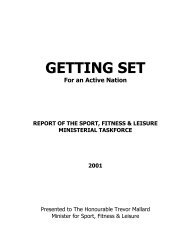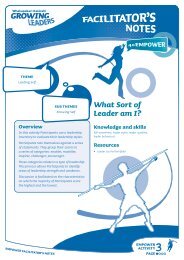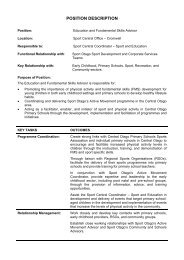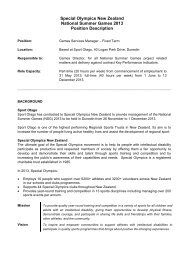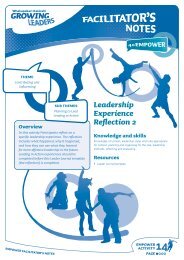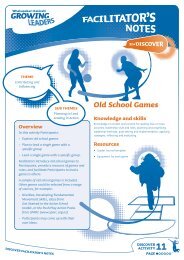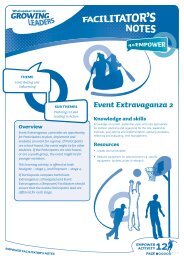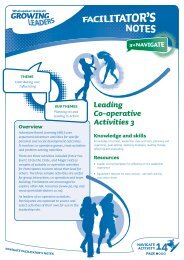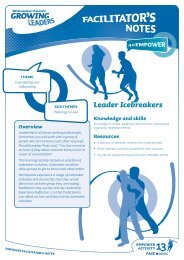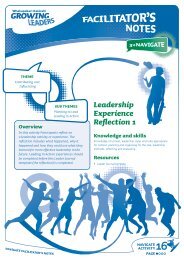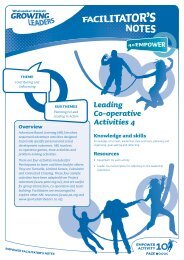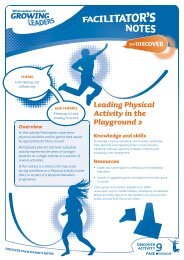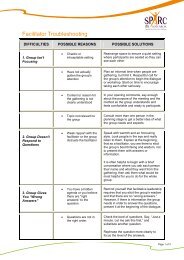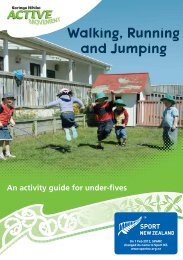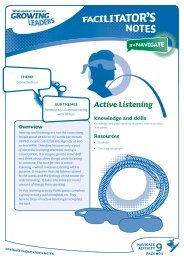An Overview - Sport New Zealand
An Overview - Sport New Zealand
An Overview - Sport New Zealand
You also want an ePaper? Increase the reach of your titles
YUMPU automatically turns print PDFs into web optimized ePapers that Google loves.
THE VALUE OF SPORT<br />
11<br />
The total value of sport and recreation to<br />
the economy<br />
The study was able to extend the economic measure in Figure 2 with<br />
estimates of the social and personal benefits from participation in sport and<br />
recreation, the non-market value. This takes the estimate of the total value<br />
of sport and recreation to <strong>New</strong> <strong>Zealand</strong> to over $12 billion ($12,192 million).<br />
How this estimate is calculated is explained below and illustrated in Figure 3.<br />
Figure 3<br />
Estimated total value of sport and recreation in <strong>New</strong> <strong>Zealand</strong>, 2008/09<br />
The total benefits from<br />
sport and recreation<br />
are valued at over<br />
$12 billion<br />
Measured Market<br />
Value of <strong>Sport</strong><br />
and Recreation<br />
$5,244 million<br />
Plus $1,038 million<br />
Productivity and<br />
Health Benefits<br />
= $6,282 million<br />
Plus a further<br />
$5,910 million<br />
Opportunity Cost<br />
of Time in <strong>Sport</strong><br />
and Recreation<br />
= $12,192 million<br />
Plus $ ???<br />
Unmeasured Market<br />
Values and non-<br />
Market (Social and<br />
Personal) Benefits<br />
from <strong>Sport</strong> and<br />
Recreation<br />
Estimated total value (market and non-market) is $12,192 million<br />
In Figure 3 the first oval shows the market value of sport and recreation in<br />
2008/09. This figure is the same as that shown in the third oval in Figure 2.<br />
The market value is only part of the picture. Physically active people have<br />
higher work productivity and better health outcomes than people who<br />
are not active. The 2007/08 Active <strong>New</strong> <strong>Zealand</strong> Survey found that 20 per<br />
cent of adults are physically active because of participation in sport and<br />
recreation. Estimating a dollar value of this group’s increased productivity<br />
and improved health, minus the costs from accidental deaths and serious<br />
sport and recreation injuries, produces an estimate of additional benefits of<br />
$1.0 billion, shown in the second oval of Figure 3.<br />
People spend a large amount of time participating in sport and recreation<br />
(including acting as volunteers or watching young people play organised<br />
sport). This participation must produce personal benefits to justify this time,<br />
which could be spent in other beneficial activities. The study uses <strong>New</strong><br />
<strong>Zealand</strong>’s statutory minimum wage to value this time, which produces a<br />
further $5.9 billion of net personal benefits, as shown in the third oval.<br />
20% of adults get<br />
the benefits of being<br />
active by taking part<br />
in sport and recreation<br />
Adults spend 400<br />
million hours a year<br />
taking part in sport<br />
and recreation<br />
Family time – adults<br />
spend 75 million hours<br />
watching children play<br />
sport<br />
As in the previous diagram, these first three ovals do not include everything<br />
that the sport and recreation sector contributes to the national economy,<br />
leaving a fourth oval with no estimate of the value at present.<br />
Sections 3 to 5 explain in more detail how the estimates in Figures 2 and 3<br />
have been calculated.



